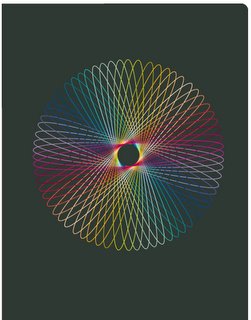 There may be many domains of PR practice and many description for PR but how many 'models' of PR are there. If one works froward from a form of practice that emerges from Rhetoric, the art or technique of persuasion, we progress through a range of practices that attempted to change relationships either directly or through the mediation of third parties.
There may be many domains of PR practice and many description for PR but how many 'models' of PR are there. If one works froward from a form of practice that emerges from Rhetoric, the art or technique of persuasion, we progress through a range of practices that attempted to change relationships either directly or through the mediation of third parties. In her post 'The end of PR as we know it' Katie Payne points us to Carl Botan and his recent paper about a model of cocreationalism. In the paper, Carl makes the point that there is a debate and that it passes most practitioners by because the trade papers (Notably PR Week) don't follow what is happening in academia.
Its rather like the Medical Journals not knowing about fundamental medical research and debates about palliative cures.
For many practitioners, this is not a problem and not a big issue. They have a form of practice that my colleague Richard Bailey would describe as collecting the 'low hanging fruit'. An example of which is provided by Julia Hobsbawm, whose practice is predicated on media contacts and is pretty well described by The Independent and the Observer. Julia was singed because she offered a 'mates rate' for writing and networking.
Compared to some of the ideas offered in the book and papers on Relationship Management by Ledingham & Bruning over some years years or the Accommodation Theory (Cancel, Cameron, Sallot, & Mitrook which has offered a continuum view for some time with a range of case studies.
and Carl Botan's latest view.
I accept there are issues. Elizabeth Toth in the current edition of Journal of Communications Management says: “New scholars find themselves in university communities that will not reward them for publishing public relations theory unless this theory is positioned as communication, management, ethics or history.” For some of us who are able to stand outside such imperatives, is, to an extent, a luxury but it has not prevented some excellent work.
But as Professor Toth says, “both practitioners and scholars have legitimate complaints about the communication between them” and, as a new PR mag hits the streets in the UK, there is no need for the trade media to be so badly informed and to do so little justice to excellence among both practitioners and academics. It makes the industry dysfunctional.
Picture: Dysfunctional media
No comments:
Post a Comment